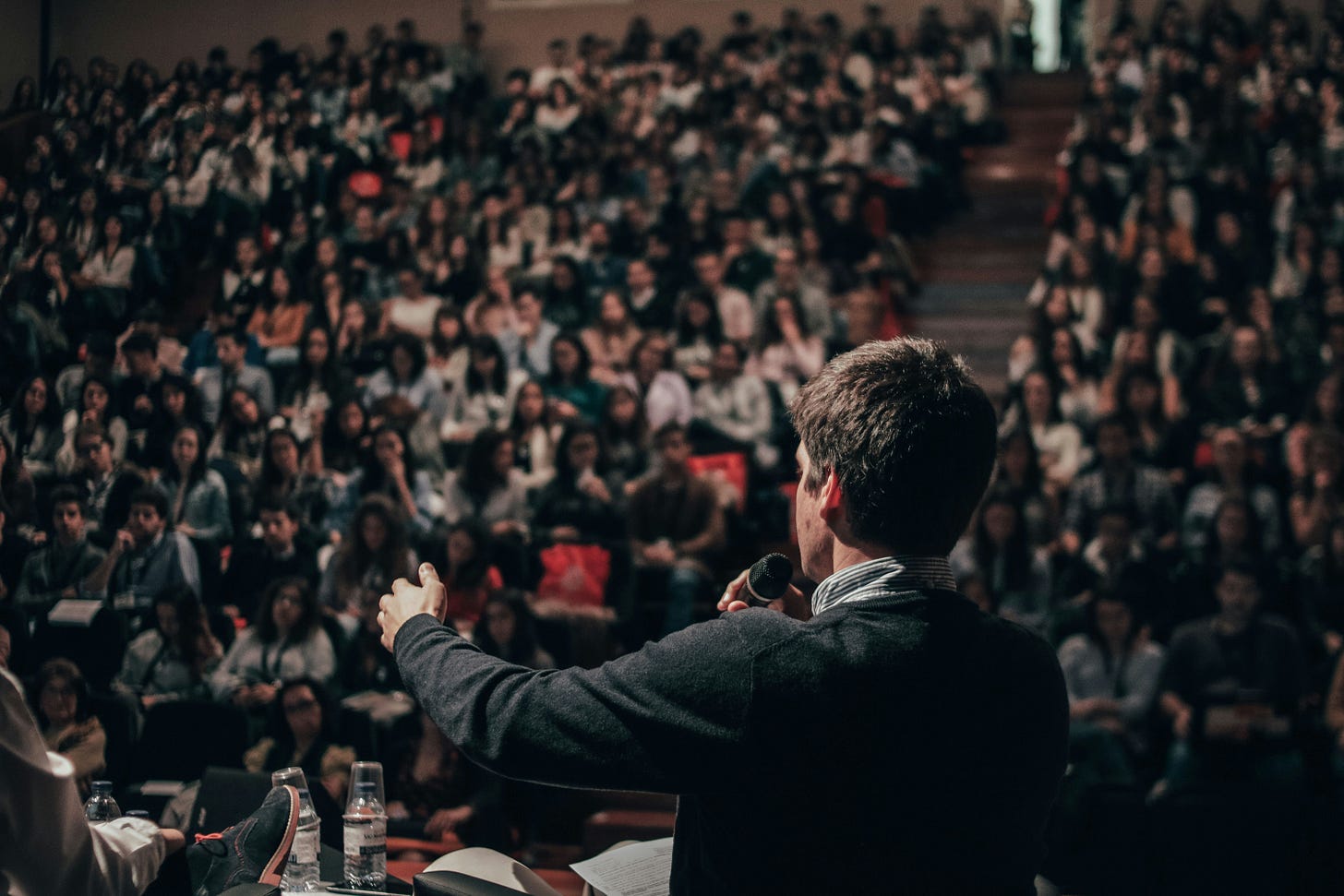🏷️ Categories: Motivation, Social relationships.
There are times when you feel unstoppable.
You finish your tasks ahead of schedule, everything flows, and your performance is exceptional. And other times, you're doing the same task… but everything feels like an uphill battle. The only difference? Someone else is in the room.
They don’t speak. They don’t do anything. And yet, their presence alters your performance.
This is the mere presence effect.
Our performance can soar—or completely crash—based solely on whether someone else is present. It’s not magic. It’s science. And understanding it can change how you work, study, or even train.
Here you’ll discover why this happens, the mysterious discovery behind it, and—most importantly—how to use it to your advantage.
Triplett’s Experiment
It all started with bicycles.
In a groundbreaking 1897 study, psychologist Norman Triplett noticed something curious when reviewing cyclists’ records: athletes seemed to ride faster when racing with others than when riding alone—even when that “companion” was just a mechanical pacer.
Coincidence? Competition? Pressure to win?
Triplett had an idea: maybe it wasn’t the race itself, but the external presence.
So he brought the idea into the lab with a simple, yet revolutionary experiment. He had a group of children wind fishing reels. Some did it alone. Others did it side by side with another child, though without directly competing.
The result?
Children who did the task in the presence of another did it faster.
Triplett called this phenomenon social facilitation: the idea that the mere presence of another can affect our performance. And not just in humans—later, the same pattern was observed in ants digging (Chen, 1937) and chickens eating (Tolman, 1964). It’s not a uniquely human trait.
But much remained to be discovered…
Negative Presence
The next wave of studies created confusion.
Yes, for simple, repetitive, well-learned tasks—like winding a reel—having others around boosted performance. But when it came to solving mazes, memorizing syllables, or doing difficult calculations… the effect reversed.
People performed worse.
Psychologists were facing a paradox: how could the same variable—the mere presence of another—produce opposite effects? The mystery of presence remained unsolved until a breakthrough idea arrived.
The Mere Presence Effect
In the 1960s, Robert Zajonc proposed an idea that would change psychology forever:
“The presence of others increases physiological arousal.”
In other words, it makes us more alert, more active, more ready. But that same increase in arousal has a curious effect: it amplifies our dominant response.
If the task is easy or well-learned, the dominant response is usually correct (you know what you're doing). So, you perform better.
But if the task is hard or unfamiliar, the dominant response is likely to be wrong (you don’t really know what you’re doing). So, you perform worse.
Zajonc solved the mystery in an elegant way.
And studies backed up his theory.
Take pool players, for example. Experts performed better when observed—they sank more balls, played more precisely. For them, the dominant response was success. But beginners, under the same observation, made more mistakes, missed easy shots, froze up. Their dominant response was to fail, to hesitate.
The pattern repeats again and again: presence amplifies what’s most likely in you.
And it’s not just presence—it’s also about crowding and proximity. When the audience is large or physically close, arousal can be so high it becomes paralyzing. What once felt effortless now becomes shaky and uncertain.
The presence of one person can feel overwhelming. A crowd can feel paralyzing.
Why Does Presence Affect Us?
It comes down to evaluation apprehension.
When someone is watching us, we fear being judged. Sometimes consciously, other times automatically and unconsciously. Their presence triggers a psychological and physiological response. It increases heart rate, breathing, muscle tension. Incredibly, this happens even in monkeys—being watched by others activates them.
A revealing experiment showed that when observers were blindfolded, the effect didn’t occur. It’s not enough for someone to be present. They have to be able to evaluate us.
The effect is intensified when:
The observer is a stranger
Has status or authority
Is an expert in the task
Their opinion matters to us
We want to make a good impression. We want to demonstrate our capabilities socially. That’s why this arousal kicks in—especially if the person observing checks off one or more of those four traits.
And that arousal is a double-edged sword, depending on your dominant response.
If you’re good at it, you’ll be even better.
If you struggle with it, you’ll struggle more.
Now you know why you sometimes transform when someone enters the room. Why you give your best at the gym when training with someone else. Why you stumble during a speech in front of an audience, even though it flowed effortlessly at home.
It’s not coincidence. It’s the presence effect.
Are you learning something new? Seek solitude and silence.
Have you mastered the task? Surround yourself with others. Your performance can soar.
Feeling paralyzed by judgment? Practice without an audience, and then expose yourself gradually. That’s why I recommend starting out as a writer by keeping a private journal.
Presence is like a magnifying glass: it doesn’t change what you are—but it magnifies what’s already there.
✍️ Your turn: When have you most intensely felt the effect of someone’s presence?
💭 Quote of the day: “I don’t know how he calmed me down without saying a word, but he did. Some people have a soothing presence—and he’s one of them.”
— Colleen Hoover, It Ends With Us.
See you in the next newsletter! 👋
References 📚
Chen, S. C. (1937). Social Modification of the Activity of Ants in Nest-Building. Physiological Zoology, 10(4), 420-436. URL
Tolman, C. W. (1964). Social facilitation of feeding behaviour in the domestic chick. Animal Behaviour, 12(2-3), 245-251. URL
Triplett, N. (1898). The Dynamogenic Factors in Pacemaking and Competition. The American Journal Of Psychology, 9(4), 507. URL
Zajonc, R. B. (1965). Social facilitation. Science, 149(3681), 269-274. URL







Before I married my husband, I was on a bowling team with my workmates. Whenever Jeff entered the bowling center, I would start making strikes. One after another, to everyone's amazement. One woman on the opposing team actually got angry. I thought it was hysterical. Not only would my father have been proud of me after the years he took me bowling with him, but I then knew Jeff was the guy for me.
Interesting. Makes me wonder if this affected 100% of the test subjects. EVERY kid winding the reel. EVERY biker in the race. I only ask because I'm curious if extroverts would be affected differently than introverts.